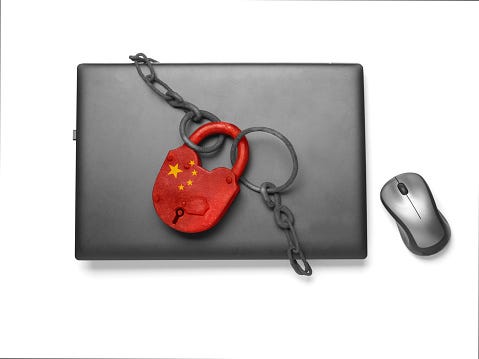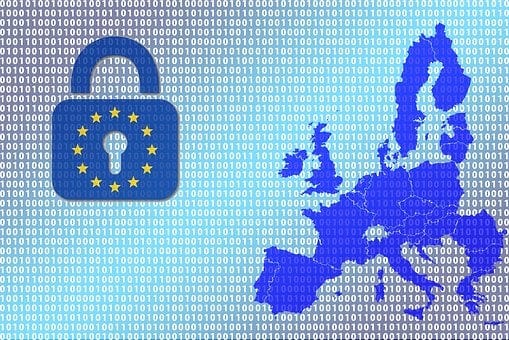Analysis: How Censorship Has Exploded in Recent Years, Part 1
An expansion of censorship was experienced during 2020-2022 all over the world. From East to West, regimes have used the pretext of a crisis to restrict the free flow of opinions and open discourse.
Main thesis:
Covid-19 health crisis offered an additional pretext for widening speech restrictions in many countries, including via Big Tech companies at their media platforms
In the US, there are signs of systematic collusion between government authorities and social media companies in order to suppress non-conforming views
In the EU, legislative acts have been adopted for tackling so-called hate speech, misinformation and disinformation online, which have been used, amongst other objectives, to direct Big Tech companies to censor non-conventional views, e.g. on Covid-19
Stigamatizing and "fact-checking" has been used by government authorities and Big Tech to legitimize censorship in order for it to appear more acceptable for the larger public
Censorship is continuing after the health crisis as a growing tendency that can be observed in labelling disagreement as "misinformation", especially by those executing power and contesting differing opinions
At the beginning of the Covid-19 crisis in 2020, George Washington University Law School professor Johathan Turley observed that the only thing spreading faster than coronavirus was censorship and loud calls for more restrictions on free speech. This has turned out as a precise assessment of what has happened to free speech in the last couple of years. Many in the free speech community have warned about the growing and insatiable appetite for censorship in the West already for years and coronavirus was only the latest rationalization for rolling back the free speech rights. Indeed, free speech opponents capitalized greatly on the opportunity presented by the pandemic and highlighting Communist China as an example.
Governments and Big Tech media companies have targeted Covid-19 content systematically, both during the pandemic and later, as societies have started moving back toward pre-pandemic normalcy. Censorship has taken the form of bans, deleted content and other restrictions. Targeted posts have generally pertained to the origins of the virus, vaccines, lockdowns, masking and/or other governmental mitigation policies.
Fear-messaging and censorship
It is of no surprise that most of the authoritarian states in the East and South used the context of the pandemic in order to increase their grip over their citizens. Communist China has systematically silenced its critics and citizen journalists who sounded the alarm about the virus in its early days, exposed the government’s attempts to cover it up and criticised its early response to control it.
But tendencies for censorship and deplatforming became evident in many democracies as well, especially against those who decided to express opinions that diverged from the orthodoxy. Mainstream journalists from different countries have highlighted censorship and fear-mongering that has gone on in the media and by West’s tech giants in regards to Covid-19 from the very beginning. For instance, the group "Hold The Line – Journalists Against Censorship" have argued that attempts to share concerns counter to the “one official narrative” or “one ‘scientific’ truth” have led to reporters being criticised by their managers, freelances being blacklisted, and the public receiving a distorted view of the truth. The notion of “one official narrative” has similarily been referred to by UK charity "Sense about Science" that concludes their query by a statement that the attitude of the governmental authorities to Covid-19 was passed on top-down, was largely authoritarian and made consequences of Covid worse. That attitude may have hindered public’s ability to adequately respond and caused unnecessary harm. Rather than empowering individuals to make sensible decisions based on risk and knowledge about the pandemic, the UK government instead chose to focus on simplistic slogans, such as "hands, face, space" and stringent universal rules. By focusing on paternalistic messaging, the government at times misled the public – for instance in leading people to believe that their risk of infection was higher than it actually was. In an attempt to increase compliance with the simplistic rules – even after evidence showed huge disparity in the risk the virus posed for varying age groups – the government continued to imply that Covid didn’t discriminate.
Rishi Sunak, who acted as Chancellor of the Exchequer of the UK during Covid crisis and was appointed Prime Minister in October 2022, disclosed in August 2022 the concerns he had had about fear messaging and how he had voiced those as a Cabinet minister, but to no avail. For instance, he had made efforts to stop the "fear" narrative and thought the posters showing Covid patients on ventilators were the worst. When Sunak tried to raise concerns about the side-effects of lockdown on government Covid meetings, he was met with a brick wall. In a speech from September 2020, he stated that it was time to learn to "live without fear", which greatly upset the Cabinet Office.
The authoritarian messaging was based primarily on fear and negative news, which were intensified daily by a multitude of media channels all over the world. Fear was used extensively during the whole crisis, fueled amongst others by predictions and modelling of the supposed deadliness of Covid-19 disease. The model of Imperial College London (N.Fergusson et al) from March 2020 was especially infamous, predicting up to 500 000 deaths in the UK and over 2 million deaths in the US by the start of summer if no "suppressive measures" were employed (ca 40 000-90 000 deaths in Sweden by the end of May). This was the turning point for introducing strict non-pharmaceutical interventions (NPIs) – lockdowns, mask mandates etc – in the UK and many places following its lead.
Rishi Sunak has later stated that a cost-benefit calculation – a basic requirement for every public health intervention – was never made for such crucial unexplained modelling and for a year, UK government policy – and the fate of millions – was being decided by half-explained graphs cooked up by outside academics of SAGE (Scientific Advisory Group for Emergencies).
Scientists Philipp Bagus, Jose Antonio Pena-Ramos and Antonio Sanchez-Bayon have in their 2021 study argued that negative information which is spread through mass media repetitively can affect public health negatively in the form of nocebo effects and mass hysteria. Such hysteria can be exacerbated and is self-reinforcing when the negative information comes from an authoritative source, while the media is politicized and social networks make the negative information omnipresent. Mass hysteria is infectious and may be a contributing and amplifying factor in real epidemics. Bagus et al stated that mass and digital media, in collabortion with the state, may have had adverse consequences during the Covid-19 crisis. The resulting collective hysteria may have contributed to policy errors by the governments not in line with health recommendations.
Governments have amplified such negative messaging in collaboration with media and social media companies, which has included suppressing opinions that have diverged from the official narrative.
Suppression of free speech in the US
Suppression of free speech on media platforms has gradually increased over the last decade. Covid-19 presented an additional pretext for intensifying it in several parts of the world. Many viewpoints and speakers have been unlawfully silenced in the so-called modern public square.
For instance, the authors of the Great Barrington Declaration, which advocated focused protection during the pandemic and has by now drawn signatures of almost a million people (including over 62 000 scientists and healthcare professionals), experienced systematic censoring and labelling, starting from the very day the Declaration was first released – October 5, 2020.

At the end of 2020, disclosed emails revealed top US government officials Dr. Anthony Fauci (Chief Medical Advisor to US President) and Dr. Francis Collins (the head of the National Institute of Health – NIH) colluding to discredit the Great Barrington Declaration and its authors (Dr. Martin Kulldorff, Dr. Sunetra Gupta and Dr. Jay Bhattacharya) for offering an alternative plan to deal with Covid-19. Fauci and Collins were coordinating a "quick and devastating published takedown" of the declaration, which, in a letter dated October 8, 2020, the head of the NIH called the work of "three fringe epidemiologists" that seemed to be "getting a lot of attention". Those epidemiologists labelled "fringe" by a top government official were a professor of medicine at Harvard University, a professor of epidemiology at Oxford University and a professor of public health at Stanford University Medical School. They were called “fringe” for their temerity to ask whether the lockdowns of 2020 were actually effective. The released emails show how officials Fauci and Collins, instead of engaging with these professionals from Harvard, Oxford, and Stanford, colluded to smear them in the media. The disclosed emails reveal their modus operandi – while Fauci and Collins speak publicly of “the science”, they are working privately to stifle dissenting views.
In the spring of 2022, Dr. Martin Kulldorf, Dr. Jayanta Bhattacharya, Dr. Aaron Kheriaty et al filed a lawsuit in the US against the US government which highlights systematic collusion between government authorities and social media companies to censor viewpoints and opinions that did not agree with the official narrative on Covid-19. Specifically, the executive branch of the US federal government has been colluding with social media in censoring content on social media platforms – Twitter, YouTube (owned by Google), and LinkedIn (owned by Microsoft), Facebook and Instagram (both owned by Meta) – that questions, challenges, or contradicts the government’s Covid policies. These doctors have been subject of repeated censorship and suppression of the freedom of speech and their views.
The plaintiffs argue that censorship has been one-sided, in government’s favor – for instance Twitter suspends only those who question the wisdom and efficacy of government restrictions, or who cast doubt on the safety or efficacy of the vaccines, but there are no examples of Twitter suspending individuals who have spread misinformation from the other side – e.g. exaggerating the efficacy of masks or the threat the virus poses for children. Dr. Bhattacharya has noted that "having observed and lived through the government-driven censorship of the Great Barrington Declaration and its co-authors, it is clear to me that these attacks were politically driven by government actors.” Dr. Kheriaty has stated that the evidence gathered suggests of uncovering the most serious, coordinated and large-scale violation of First Amendment free speech rights by the federal government’s executive branch in the entire US history.
Journalistic investigations in the US have revealed that certain agencies, e.g. Department of Homeland Security, have made systematic efforts to influence tech platforms. Behind closed doors, and by pressuring private platforms, the U.S. government has used its power to try to shape online discourse.
Suppression of free speech in Europe
In Europe, free speech is even under stronger attack than in the US. In 2017, Germany adopted the Network Enforcement Act (NetzDG) which according to an assessment by a human rights watchdog is fundamentally flawed and sets a dangerous precedent for other governments looking to restrict online speech by forcing companies to censor it on government’s behalf. It has inspired similar laws in several other countries and is one of the models for the EU legislation regarding so-called misinformation.
On July 5, 2022, European Parliament adopted Digital Service’s Act (DSA) which sets obligations for digital service providers to "tackle the spread of illegal content, online disinformation and other societal risks". It was approved by the European Concil in October 2022 and is promoted as a solution to an increased risk of disinformation gaining traction online. The need to monitor online information exchange has been explained by the desire to hinder communication campaigns from EU's adversaries (China, Russia etc), but it has quickly embraced other areas of messaging as well. Notably, DSA gives the European Commission power to impose fines of up to 6% of global turnover on very large online platforms or very large online search engines (over 45 million users in the EU) that it finds to be non-compliant with its censorship requirements. Such requirements are specified in the EU’s 2022 Strengthened Code of Practice on Disinformation and Fighting Covid-19 Disinformation Monitoring Programme which are meant to monitor and record the actions of Big Tech companies to censor Covid-19 disinformation.
In reality, however, it has meant censoring scientists, doctors, researchers, academics, journalists etc, who have expressed views on Covid-19 treatment, measures and interventions that have differed from the orthodoxy promoted by the WHO and mainstream public health authorities. In its annual Assessment of the Code of Practice on Disinformation, the EU has declared that several social media platforms (Facebook, Instagram, Youtube etc) have significantly "reduced the distribution of content fact-checked as false or misleading, or [helped] removing content directly harming public health, safety and security, in violation of their terms of service." For instance, most of the influential advocates (doctors, scientists) of early treatment or critics of Covid-19 vaccines on Twitter had their accounts suspended, many of them permanently.
Using the DSA, the European Commission is forcing Big Tech to police the internet to rein in what the EU deems to be unacceptable speech or disinformation. In so doing, the Commission has empowered itself to impose its values on the rest of the public. DSA’s implementation in the EU means that Big Tech companies are threatened with tens of millions in fines if failing to restrict or cancel content which is labelled "disinformation" or "misinformation" by the authorities or certain fact-checking institutions. It depends on the choices of those companies if they uncritically comply to such subjective notions or stand up for free speech, which should be their core value as media companies. Though the "science" regarding for instance Covid-19 has been clearly unsettled, disputed and ever-changing and the EU has in its statements emphasized how "the lessons learned from the Covid-19 crisis show that /.../ it is also essential to maintain a democratic debate", it has not stopped the EU authorities and main media companies from executing strict censorship on Covid-19 messaging, following the spring of 2020.
The majority of EU countries do not enjoy such protection of free speech as granted by the First Amendment in the US constitution, which amongst other issues considers it a violation of the First Amendment for the government to coerce or induce a private entity to undertake action that the government itself would not be permitted to, such as censoring expressions of a lawful viewpoint. As highlighted above, it is a matter of an explicit EU policy and law that directly subordinates online platforms to the Commission’s censorship agenda and requires them to implement it on pain of ruinous fines. It should be noted that DSA gives the Commission “exclusive” powers to determine compliance and to apply sanction. For online platforms, the Commission is the judge, the jury and the executioner.
In the UK, the government introduced a draft of Online Safety Bill in May 2021, which would empower Ofcom, the broadcast regulator, to fine any social media company for up to 10 per cent of their global turnover if they fail to remove so-called harmful content. Moreover, harmful was defined not only as "psychological harm amounting to at least serious distress", but the draft bill allowed it to similarly involve "legal but harmful" content, which in its grand subjectivity exceeds the limits of imagination. The bill was heavily criticized for restricting free speech and deemed, in the very least, in need of total rewrite. After relentless criticism the new version of the bill was introduced at the end of 2022, which seemed to ease some of the concerns of the critics, for instance the concept of "legal but harmful" was finally dropped. But it hasn't yet convinced those who advocate for unrestricted free speech and a fear-free space for discourse as the bill still fails to address the present legislative problem around the notion of "grossly offensive" speech which, for many years, has been used in the UK to sue someone on criminal charges.
To be continued as "How censorship has exploded in recent years, part 2"








